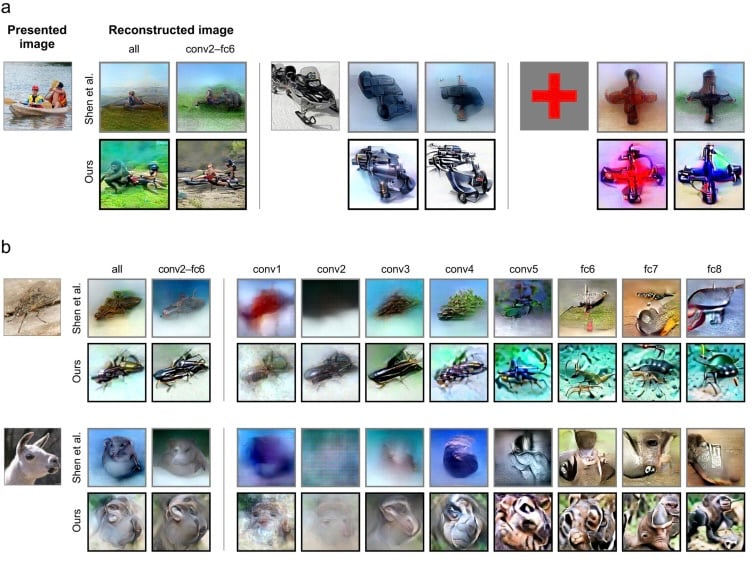AI Can Recreate Images From Human Brain Waves With ‘Over 75% Accuracy’
![]()
Scientists were reportedly able to use artificial intelligence (AI) to reconstruct images solely from people’s brain activity with over 75% accuracy for the first time ever.
According to Japanese newspaper The Mainichi, recreating images from brain activity is usually only possible when a subject is actually seeing the images with their own eyes, or when the type of images, such as faces, letters or simple figures, were specified.

However, a team of researchers at the National Institutes for Quantum Science and Technology (QST) in Japan have now demonstrated that it’s possible to accurately reconstruct complex images with AI — based almost solely from a person’s thoughts.
![]()
In a paper published in Neural Networks last month, scientists revealed how they recorded the brain activity of subjects who viewed 1,200 various images while situated in a functional magnetic resonance imaging (fMRI) machine.
The Mainichi reports that “score charts” with some 6.13 million factors such as color, shape, and texture were also created by making the AI recognize the images.
The scientists also developed a neural signal translator program that matches brain activity with the scoring chart, creating new scoring charts when new brain activity is input.
The subjects were then shown another set of images that were different to the original 1,200 images, and their brain activity was measured under the fMRI 30 minutes to an hour later while asked to imagine what kind of image they had seen.
Inputting the records, the neural signal translator then created score charts. The charts were input into another generative AI program in order to reconstruct the image, undergoing a 500-step revision process.
According to the publication, the scientists’ groundbreaking method allowed them to use AI to reconstruct original images with a 75.6% accuracy rate — which is a big step from previous efforts with allowed a 50.4% accuracy rate.
The scientists believe the technology could be beneficial in the medical field especially where specific individuals have lost the ability to verbally communicate and could lead to new forms of communication.
Image credits: All images via “Mental image reconstruction from human brain activity: Neural decoding of mental imagery via deep neural network-based Bayesian estimation” by Naoko Koide-Majima, Shinji Nishimoto, and Kei Majima .